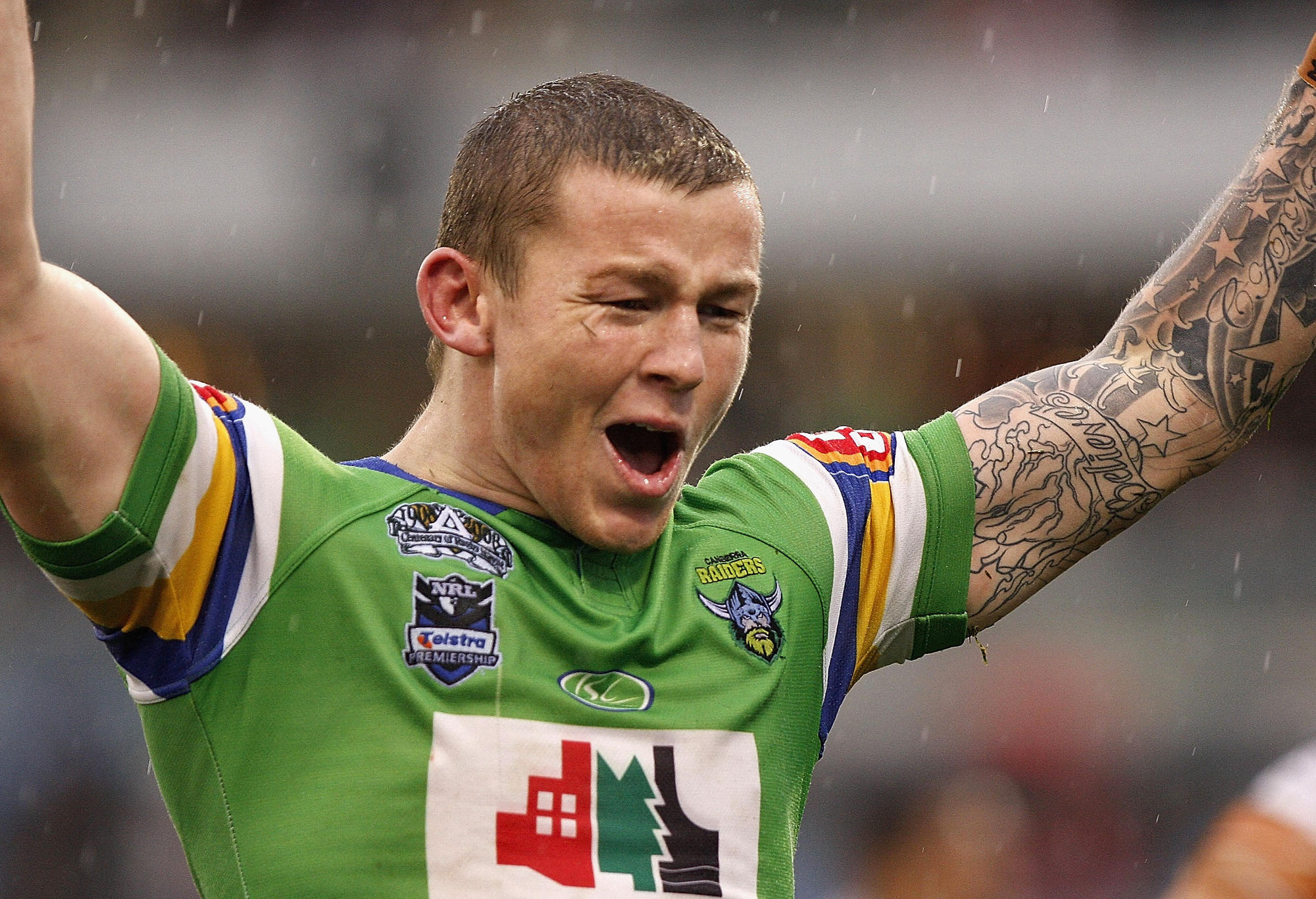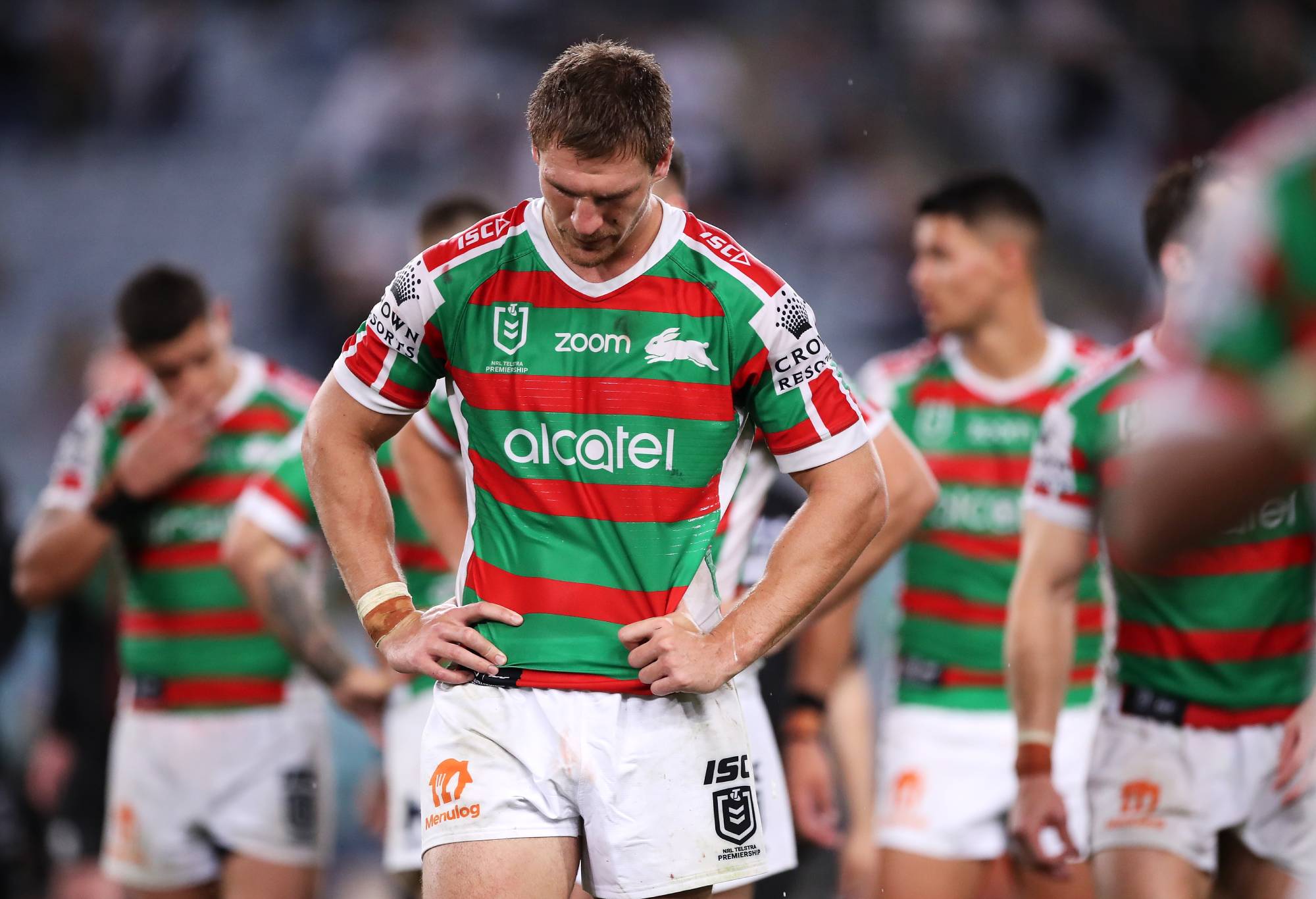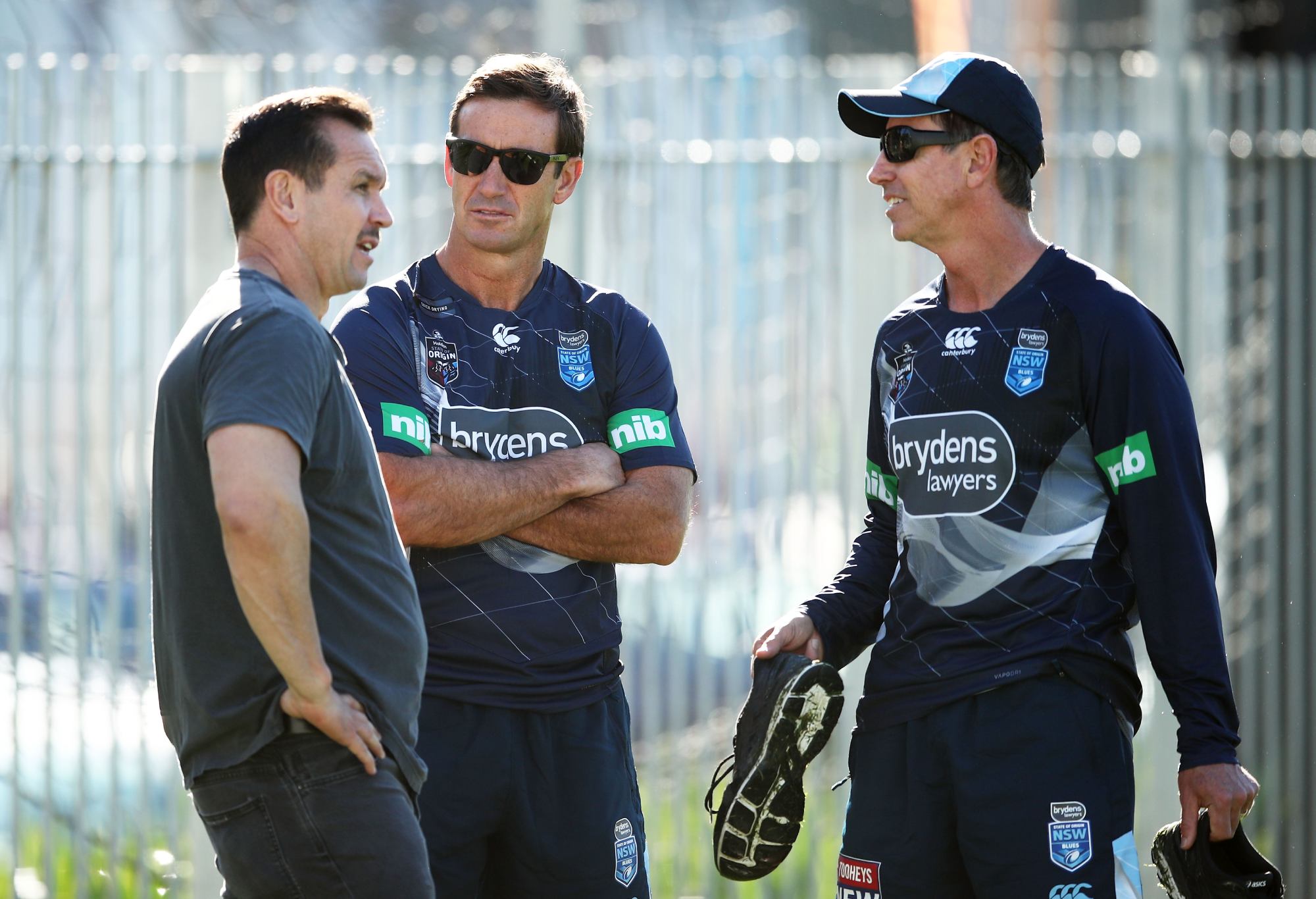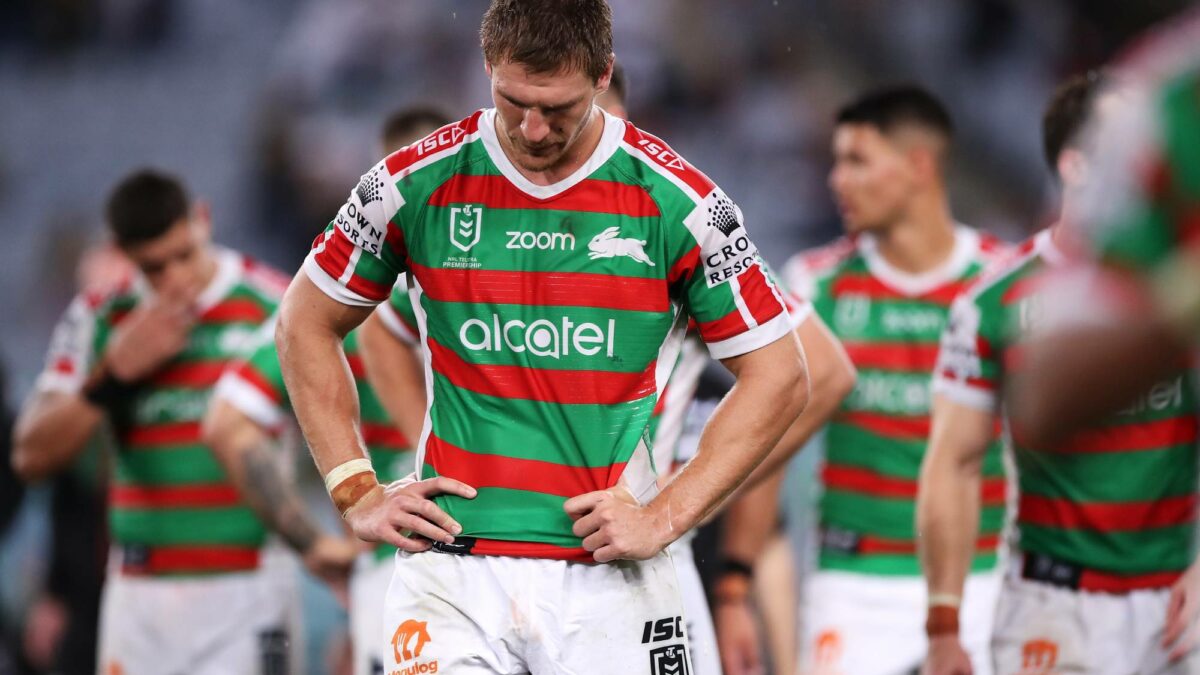Having a famous father can be both a blessing and a curse, and there are many NRL players who’ve tried to follow in their father’s footsteps with varying degrees of success.
The inherited rugby league genetics might be helpful, and perhaps the famous name will open a few doors along the way, but those benefits not only come with a high degree of expectation and scrutiny, but also bring the tall poppy syndrome into play.
There are countless examples of players who have successfully emulated their father’s career, and some have met with much more success than their dad. Think Nathan and Ivan Cleary, Brett and Josh Morris and their father Steve, Matt and Steve Rogers, Eric Grothe Jnr and Snr, Brett and Bill Mullins, Mitchell and Wayne Pearce and Dean and Craig Young.
Unfortunately though, many more fall short for a host of reasons including the weight of expectation, injury, motivation or other circumstances beyond their control.
Here’s a team of players who made a start in rugby league but never reached the career heights of their fathers.
1. Troy McCarthy (Bobby McCarthy)
Bobby McCarthy was a South Sydney legend and a member the NRL Hall of Fame. He was a devastating wide-running forward who finished his career with over 250 first grade games, three premierships, and a host of appearances for both NSW and Australia and went on to become a coach with some success.
Not as big as his barrel-chested father, Troy McCarthy played either five-eighth, centre or fullback, and looked to have some promise when representing Queensland as a junior.
He made his first-grade debut for the Gold Coast/Tweed Heads Giants in 1988, with his father as coach, and went on to play a total of 45 games for the club over the next six years. He also spent some time with Hull KR in the Australian off-seasons in 1991 and 1992, playing 13 games in the top grade.
2. Bronx Goodwin (Ted Goodwin)
Bronx Goodwin looked to be building a solid first grade career with Canberra after debuting for the club in 2007, but he made the mistake of spending his evenings with Todd Carney, one of Canberra’s serial trouble makers. The Raiders punted Goodwin in 2008 after he pleaded guilty to an assault during a night out with Carney, and the rest of his first-grade career was limited to just a handful of games with Cronulla and St George Illawarra.

Todd Carney in better times. (Photo by Stefan Postles/Getty Images)
By contrast, his father, “Lord” Ted Goodwin, was one of the most exciting players of the 1970s, particularly during his time with St George between 1972 and 1978. On his day Goodwin could do anything and could make the opposition look pedestrian.
He was a key player in the Dragons’ 1977 premiership win and played 147 first grade games in his career, including stints with both Newtown and Western Suburbs. He also played four games for Australia and nine for NSW.
3. Joel Reddy (Rod Reddy)
When at the peak of his powers in the late ’70s, Rod “Rocket” Reddy was arguably not only the best player in the world, but also the most ruthless and violent. He played over 200 games for the Dragons, won premierships with them in 1977 and 1979, and was a regular member of both the NSW and Australian sides, including the 1982 Invincibles Kangaroo tour.
Joel Reddy was best described as a reliable first grader. There was nothing outstanding about his game, but he was dependable, whether playing in the centres or on the wing. He played 136 first grade matches in his career, firstly with the Eels, then the Tigers and finally South Sydney.
4. Jed Cartwright (John Cartwright)
There is no more famous name in the Panthers’ lexicon than Cartwright, with the club owing its very existence to late founding father Merv Cartwright, whose son John built a reputation as one of the Panthers’ very best in the mid-1980s and ’90s.
John Cartwright was a giant of a man with the ball skills of a halfback to complement his power game. He was part of the club’s first premiership win in 1991, Dally M Second Rower of the Year in both 1991 and 1992, played over 180 games for the club, and represented both NSW and Australia with distinction before embarking on his coaching career.
John’s son Jed Cartwright, on the other hand, is still struggling to make his mark in the game. A Penrith junior, he debuted for the club in 2019, but that was his only top-grade appearance for the club, and he then played another 30 odd first grade games for Souths and then Newcastle over the next five years. Perhaps his recent move to Hull FC in the Super League will unlock the 28-year-old’s potential.

Jed Cartwright with South Sydney. (Photo by Mark Kolbe/Getty Images)
5. Jarrad Anderson (Chris Anderson)
Jarrad was always going to struggle to emulate the famous rugby league deeds of his father, and in the end, he got nowhere near them. Chris Anderson was one of the top wingers in the game during his 14-year career with the Bulldogs, crossing for 94 tries, represented both NSW and Australia, and then went on to be a premiership-winning coach with the Bulldogs, also coaching Australia in 25 Tests with an 88 per cent win record. Impressive.
Jarrad’s only claim to rugby league fame came in 2003 when his father and coach elevated him to the Cronulla first grade side. He played 14 games in the top grade for the Sharks that year before being unceremoniously punted by the club at the end of the season, evoking a strong reaction from his father.
Jarrad Anderson didn’t play first grade again.
6. Luke Branighan (Arthur Branighan)
Luke Branighan made his debut for the Dragons midway through the 2000 season following Anthony Mundine’s departure from the game to pursue his boxing career. He then joined the Sharks in 2001, but made only one further NRL appearance, and after spending some time battling away in the lower grades, headed to England in 2009 for a couple of seasons with both Gateshead Thunder and Halifax.
His father Arthur was a very good centre for South Sydney in the late 1960s and early ’70s. Arthur Branighan played in Souths’ grand final loss to St George in 1965, won premiership rings in both 1968 and 1970, and was a non-playing reserve for Souths in both the 1969 and 1971 deciders.
7. Dane Dorahy (John Dorahy)
Dane Dorahy’s father was one of the game’s highest profile players during the 1970s and 1980s, and there wasn’t much he didn’t achieve in rugby league. A fullback or centre, he was a prolific point-scorer, strong defender and great broken field runner in attack, and in a career that stretched some 20 years he played over 400 games, both here and in England and represented both NSW and Australia.
Dane Dorahy’s NRL career was limited to just a single season with Wests in 1999, and he then had a number of seasons in England before hanging up the boots and pursuing a career in coaching.
8. Lincoln Raudonikis (Tommy Raudonikis)
When you think Western Suburbs Magpies you naturally think of Tommy Raudonikis, who epitomised the rough, tough, battling persona of the club. Tommy played over 200 games for the Magpies, won the Rothmans’ Medal in 1972, played 24 games for NSW, including captaining the Blues in the very first Origin game, and played 31 Tests for Australia. He was arguably Western Suburbs’ greatest player.

(Photo by Sean Garnsworthy/Getty Images)
Lincoln, on the other hand, played just 24 games for the Magpies across the 1998 and 1999 seasons, winning only two of them, with Tommy as his coach. Perhaps his biggest claim to fame is that he was part of the only father-son, player-coach combination to participate in a club’s last-ever game.
9. Scott Fulton (Bob Fulton)
When it comes to famous fathers, it’s hard to beat Bobby Fulton. He is a rugby league immortal, won three premierships as a player, two as a coach, played 16 games for NSW, 35 Tests for Australia, 39 games as Australian coach, and the list goes on and on.
Scott Fulton was never going to live up to that legacy, but he did manage to play 49 games for Manly between 1993 and 1999, which was, interestingly, the same period in which his famous father coached the team. Does nepotism exist in rugby league?
10. Dean Britt (Darren Britt)
Things got off to a promising start for Dean Britt, coming out of the St Gregory’s College system and playing for the NSW Under 20’s Team against Queensland in both 2013 and 2014. He joined the Storm when he left school and made his debut for them in 2017 prior to being loaned to the Rabbitohs mid-season.
He played 16 games for Souths before heading to his father’s spiritual home at the Bulldogs in 2020, where he played his final 12 first grade games before being released at the end of 2021.
Britt’s father Darren was an exceptional front rower who became an inspirational leader with the Bulldogs after spending a few years with Western Suburbs. He captained the Bulldogs to their seventh premiership in 1995 and played 168 games for the club across eight seasons before joining St Helens in the Super League, where he was part of their grand final victory in 2002.
He also played nine Tests for Australia. One of the original “Dogs of War”.
11. Jamil Hopoate (John Hopoate)
To describe Jamil Hopoate’s father John as a rugby league bad boy would be a serious understatement. Whether it was his unwanted amateur proctology exploits, or just his bad temper, John Hopoate was always in the news for the wrong reasons, but he sure could play when he put his mind to it.
He was a weapon on the field, racked up 209 career games, won a premiership with Manly in 1996, and played for NSW, Australia and Tonga.
Unlike his siblings Will, Lehi and Albert, Jamil Hopoate didn’t use his inherited talent to build a career in the game, racking up several convictions before finally making his first grade debut for the Broncos in 2020. His career was short-lived though, as he was jailed for drug supply in early 2021.
12. Jack Johns (Matthew Johns)
When your father is Matthew Johns and your uncle is rugby league immortal Andrew Johns, you’d imagine that enough skill would rub off just playing backyard footy, but that wasn’t the case for Jack Johns.
He spent the first couple of years of his career playing in the lower grades for Newcastle before joining Souths in 2019 where he made his first grade debut the following year. He then rejoined the Knights in 2021 and played a further 14 games across the 2021 to 2023 seasons, leaving the club at the end of that year.
Matthew Johns is one of Newcastle’s favourite sons, having played 176 games for the club and winning a premiership with the Knights in 1997. He has also represented both NSW and Australia.

Johns at Blues camp with brother Andrew and Greg Alexander (Photo by Matt King/Getty Images)
13. Paul Carter (Steve Carter)
Put simply, Steve Carter was one of the Panthers’ best clubmen, spending 14 years at the club, churning out some 260 games. He had great pace and all the tricks you’d expect in a five-eighth, was a Panther through and through and was part of the club’s first premiership victory in 1991.
Paul Carter inherited much of his father’s ability but seemingly none of his good character or application. A talented lock, second rower and hooker, he got off to a good start, representing both the Australian Schoolboys and the NSW Under 20’s team, was named in the 2012 NYC Team of the Year and played for the NSW Residents’ team in 2013.
He joined the Titans in 2014 where he made his first grade debut that same year but had his contract terminated in December 2014 for disciplinary reasons. His next port of call was South Sydney in 2015 but by July the following year his contract was terminated and joined the Roosters in 2017.
That arrangement lasted until June 2017 when the club released him without comment, effectively bringing his NRL career to an end at the age of 25. His record of ill-discipline and alcohol abuse has gotten progressively worse since his football career came to an end.
Can you think of any NRL players who failed to live up to their father’s legacy?
